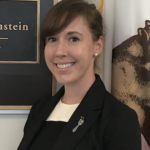“Independent, physician-owned practices play a vital role in healthcare,” he says. “That’s how medicine began in this country, and if we push these practices out, I think the quality of care is really going to suffer.”
After serving on the ACR’s Insurance Subcommittee for the past three years, Dr. Hirsh recently began serving on the ACR’s Government Affairs Committee. He’s also active with the Coalition of State Rheumatology Organizations.
“At the state level, we’ve worked hard to push for increased funding to expand residency training programs in Florida,” Dr. Hirsh says. “Fortunately, during the last legislative session, Florida passed major legislation that significantly boosts funding for in-state residency slots.”
Ensuring Safe Patient Care
A nationally recognized musculoskeletal ultrasound instructor, Dr. Hirsh is also vocal about what the American Medical Association (AMA) refers to as scope creep—that is, the growing trend of nonphysician providers, such as nurse practitioners and physician associates, to diagnose and treat patients without physician oversight. “Nurse practitioners and physician associates play a vital role in healthcare, especially in rheumatology,” Dr. Hirsh says. “We believe that role should be part of a physician-led team, which is usually the case in rheumatology patient care.”
This year, he and his colleagues are pushing back against proposed legislation in Florida that would allow nurse practitioners to practice independently as psychiatrists or anesthesiologists without physician supervision.
“A patient could undergo a procedure and never know their anesthesia was being administered by someone without the highest level of training and physician backup,” he says. “That’s not acceptable when patient lives are on the line.”
A Legacy of Advocacy
Dr. Hirsh earned his Bachelor of Science and his medical degree from the University of Florida. After an internship at Northwestern University, Chicago, he completed his residency in internal medicine at Jackson Memorial Hospital, University of Miami. He served on the faculty for one year as chief resident before completing his subspecialty in rheumatology at the University of Miami.
Dr. Hirsh says his focus has always been on providing patient-centered care, advancing medical education and demonstrating professional leadership.
“I realized there was a lot we had to do in terms of advocacy, and very few physicians were lawmakers,” he says. “I knew it was critical for physicians to have a voice at both the state and federal levels, but I couldn’t ask anybody else to advocate on my behalf and advocate on behalf of the house of medicine if I [weren’t] willing to spend the time and energy myself.”
